Introduction
Cracking the KCET 2026 with a top rank requires not just hard work, but smart, focused preparation. When time is limited and the syllabus is vast, attempting to master every chapter equally may not be the best approach. Instead, concentrating on high-weightage and scoring topics allows you to use your time more efficiently and maximize your marks.
Certain chapters consistently contribute a higher number of questions across subjects, making them critical to your exam preparation. In this extended guide by Deeksha Vedantu, we take a deep dive into these top-priority topics for Physics, Chemistry, and Mathematics, backed by analysis of previous year KCET papers. Along with this, we share expert study tips, revision ideas, and strategic advice to help you gain an edge in your KCET 2026 attempt.
Physics – High-Scoring Topics
Physics in KCET blends both theory and numerical problem-solving. Scoring well depends on mastering key formulas, understanding core principles, and practicing repeatedly.
| Chapter | Importance |
| Current Electricity | High-yield chapter with predictable question types, scoring with practice |
| Electrostatics | Good mix of conceptual and application-based questions |
| Ray Optics and Wave Optics | Diagram-based theory, derivations and application-heavy |
| Laws of Motion | Easy scoring topic if Newton’s laws and examples are revised thoroughly |
| Thermodynamics | Overlaps with Chemistry, numerical accuracy matters |
| Oscillations and Waves | Scoring with minimal theory complexity |
| Semiconductor Electronics | Direct theory-based questions, high accuracy if concepts are clear |
| Alternating Current | Conceptual, needs understanding of phasors and average values |
| Magnetic Effects of Current | Often tested with diagrams and reasoning questions |
Additional Tips:
- Memorize SI units, standard values, and frequently used constants.
- Maintain a formula book and revise it every 2–3 days.
- Solve numerical PYQs and similar variants to gain familiarity with real exam patterns.
- Watch conceptual videos for tough topics like magnetism and AC circuits.
Chemistry – High-Scoring Topics
Chemistry rewards consistency and memorization. Many questions are lifted directly from NCERT content. By focusing on core themes and building a strong memory recall strategy, you can secure high marks.
| Chapter | Importance |
| Organic Chemistry (Nomenclature + Rxns) | Nearly 25% of Chemistry questions relate to reaction mechanisms and naming |
| Chemical Bonding and Molecular Structure | Basis of hybridization, VSEPR, molecular geometry — foundational for other topics |
| Thermodynamics | Shared with Physics, includes numerical questions on enthalpy and Gibbs free energy |
| Electrochemistry | Strong weightage due to numericals and theory, ideal for confident scorers |
| The p-Block and d-Block Elements | Repeated theory questions from NCERT tables and facts |
| Coordination Compounds | High weightage, mostly direct and theory-based |
| Surface Chemistry | Small chapter, high return on investment due to frequent one-mark questions |
Additional Tips:
- Create visual mind maps for reaction mechanisms and functional group conversions.
- Revise NCERT diagrams, flowcharts, and tables line by line.
- Take chapter-wise quizzes regularly to test retention.
- Focus heavily on Inorganic and Organic Chemistry in the final revision weeks.
Mathematics – High-Scoring Topics
Mathematics rewards problem-solving consistency. Once you understand the method, every question from a chapter becomes a chance to score.
| Chapter | Importance |
| Integrals and Application of Integrals | Very frequent topic, often includes two full questions in KCET |
| Continuity and Differentiability | Gateway to higher calculus, essential for application-based problems |
| Matrices and Determinants | Easy formulas, low error probability, high scoring |
| Probability | Theory and application, expected to cover at least one question |
| 3D Geometry and Vectors | Commonly tested, practice ensures high confidence in coordinate systems |
| Application of Derivatives | Essential for curve sketching, optimization problems |
| Linear Programming | Straightforward graph-based problems with guaranteed 1–2 marks |
| Binomial Theorem | Often overlooked, but appears with short and easy scoring questions |
Additional Tips:
- Don’t just revise formulas—practice application problems regularly.
- Work through previous 5 years’ KCET Math papers.
- Practice mixed question papers to improve speed across varied chapters.
- Use online quizzes or flashcards to keep formula memory fresh.
Expert Strategy: How to Prioritize Topics
- Start with your strongest subject and complete all high-weightage chapters in it.
- Move to the subject where you need more practice and focus on 3–4 scoring chapters.
- Set weekly goals like: “Solve 100 Math questions,” or “Revise 3 Chemistry chapters.”
- Use a topic tracker or checklist to monitor coverage.
- Revise every Sunday the chapters you studied through the week to build long-term retention.
FAQs
1. Are these high-scoring topics enough to crack KCET?
These topics usually cover 65–75% of the total questions. While full syllabus preparation is ideal, mastering these will give you a major score advantage.
2. What’s the best way to revise high-weightage topics?
Use revision charts, PYQ sets, daily quizzes, and weekly mock tests. Focus on both accuracy and speed.
3. Can I focus only on high-scoring chapters?
No, it’s a good starting point but not a substitute for complete preparation. You should move on to mid-level chapters once the major topics are covered.
4. How many hours should I dedicate daily for these topics?
Ideally 4–6 hours per day split across all 3 subjects, with at least 2 hours dedicated to solving PYQs and mock tests.
Conclusion
KCET 2026 will reward students who prepare with precision and purpose. By prioritizing the most important chapters in Physics, Chemistry, and Mathematics, you can ensure a higher strike rate during the exam. These high-scoring topics aren’t just popular—they’re reliable, well-structured, and exam-tested.
At Deeksha Vedantu, we guide you every step of the way with personalized plans, concept classes, doubt-clearing sessions, and full-length mock tests. Our approach ensures that you’re not just studying—you’re studying smart.
Focus on what matters. Revise with strategy. Excel in KCET 2026.


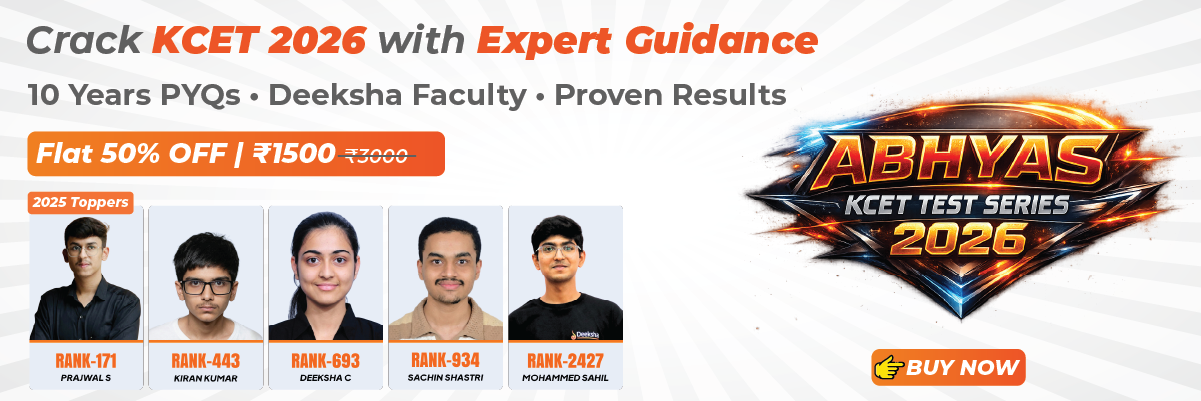
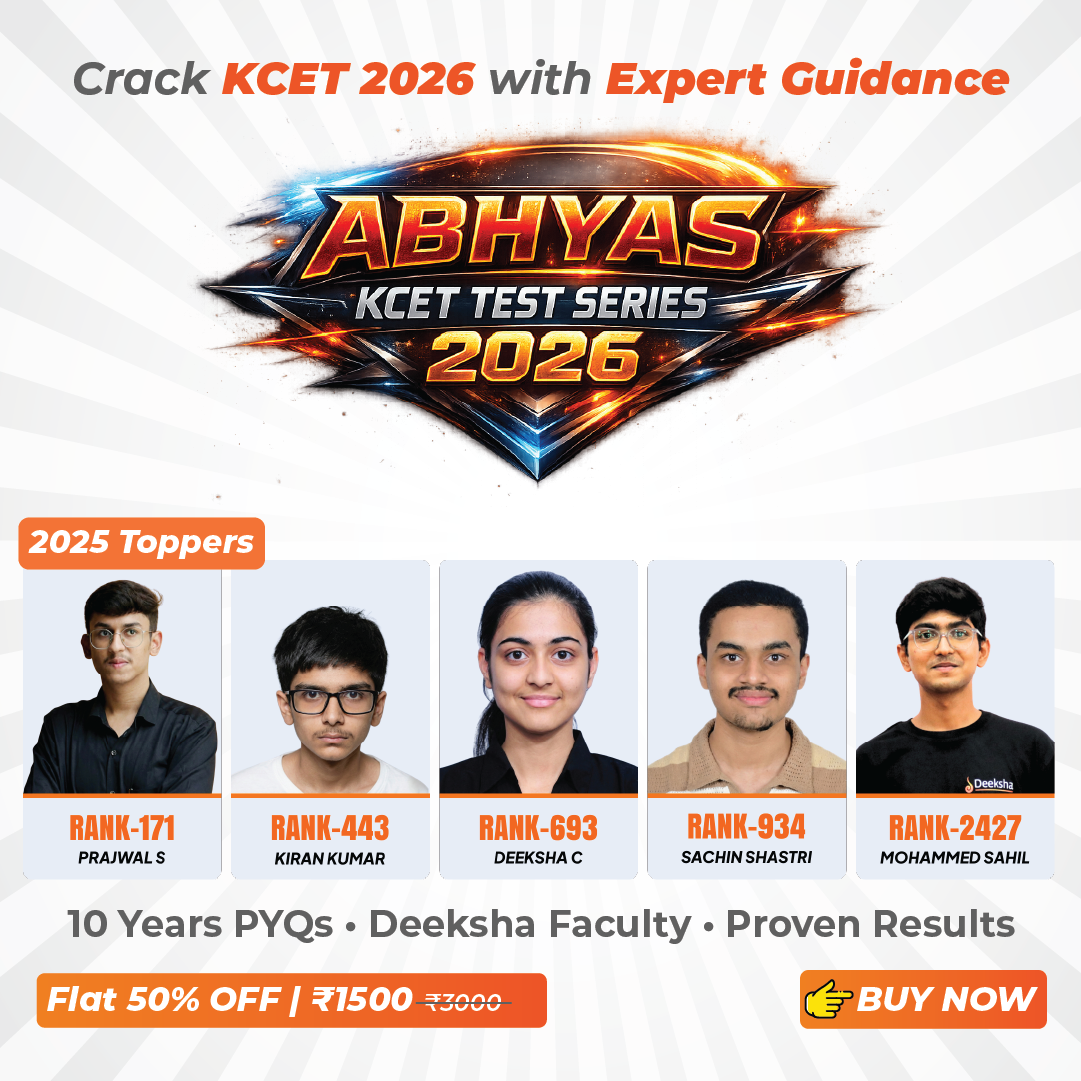
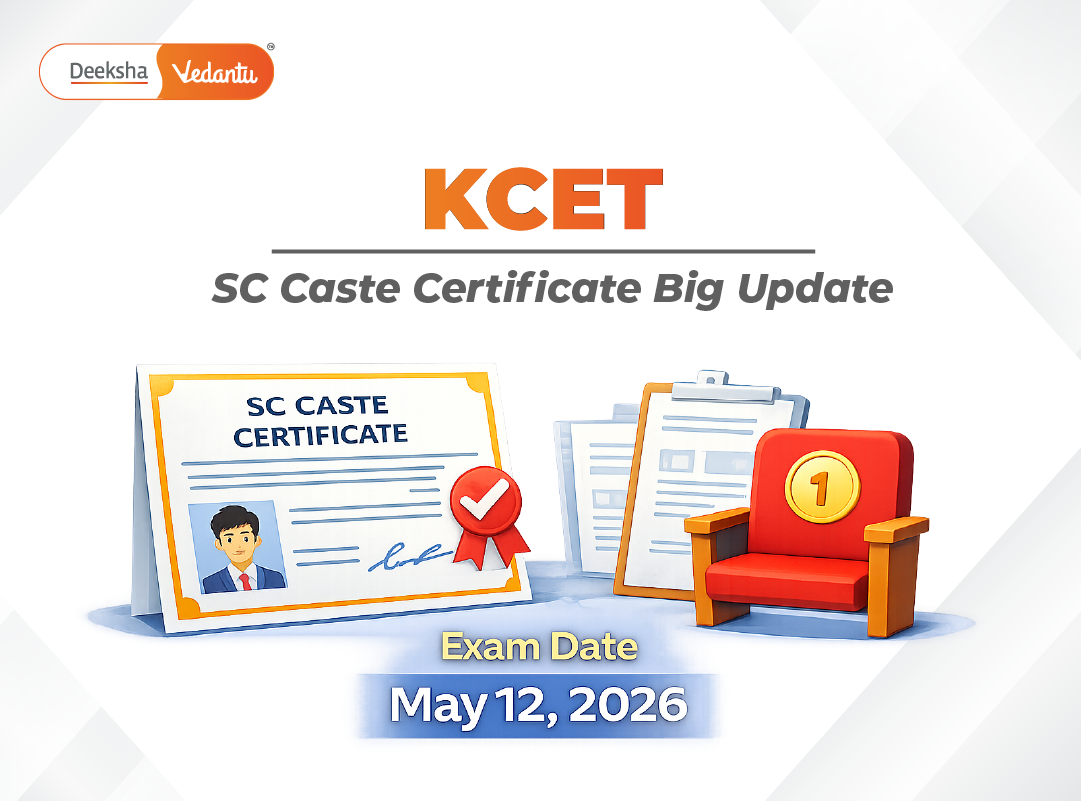
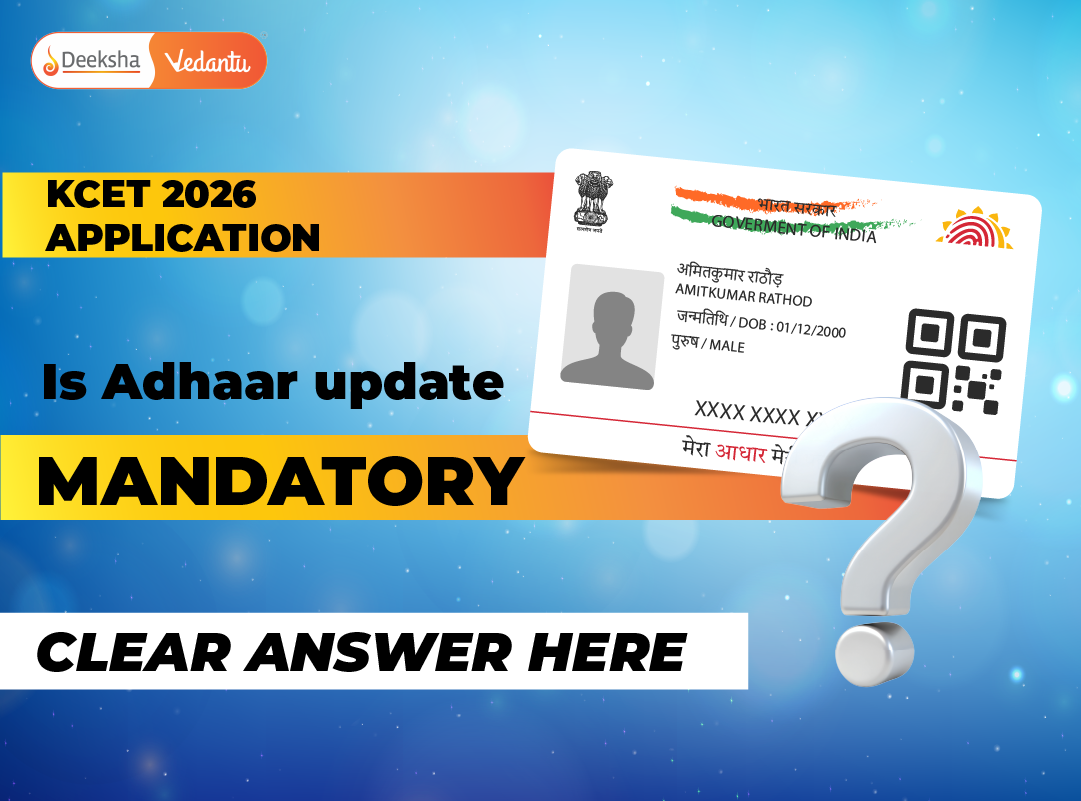
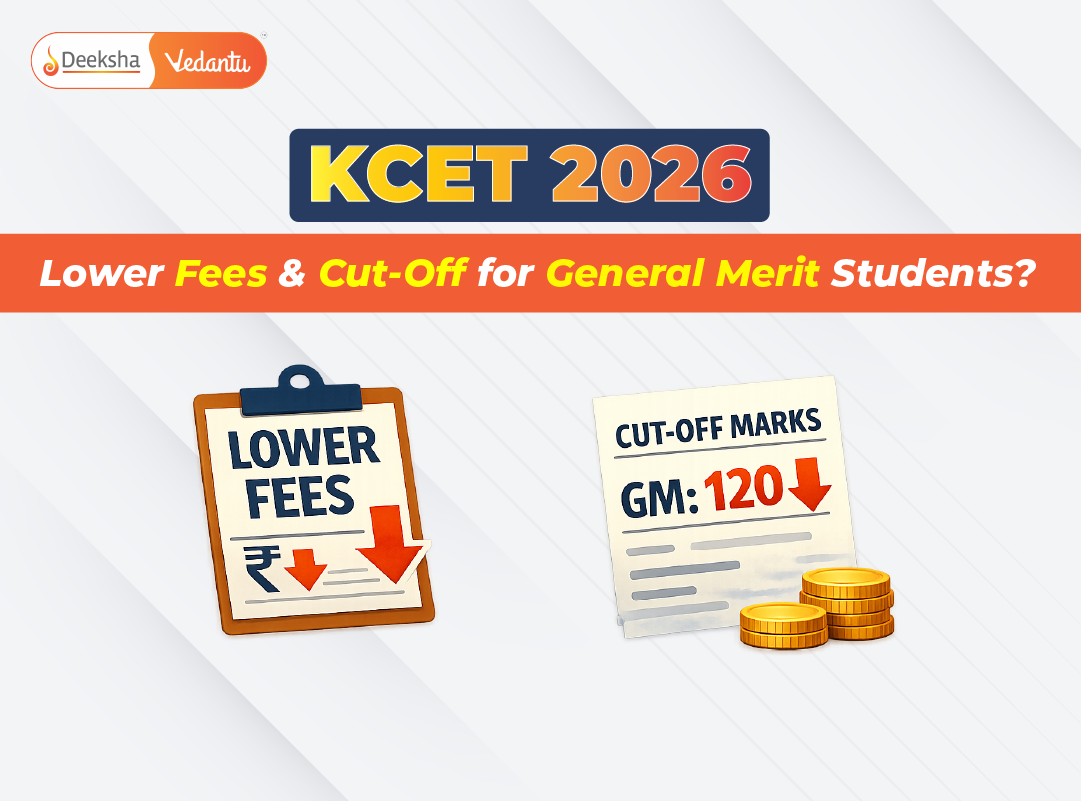
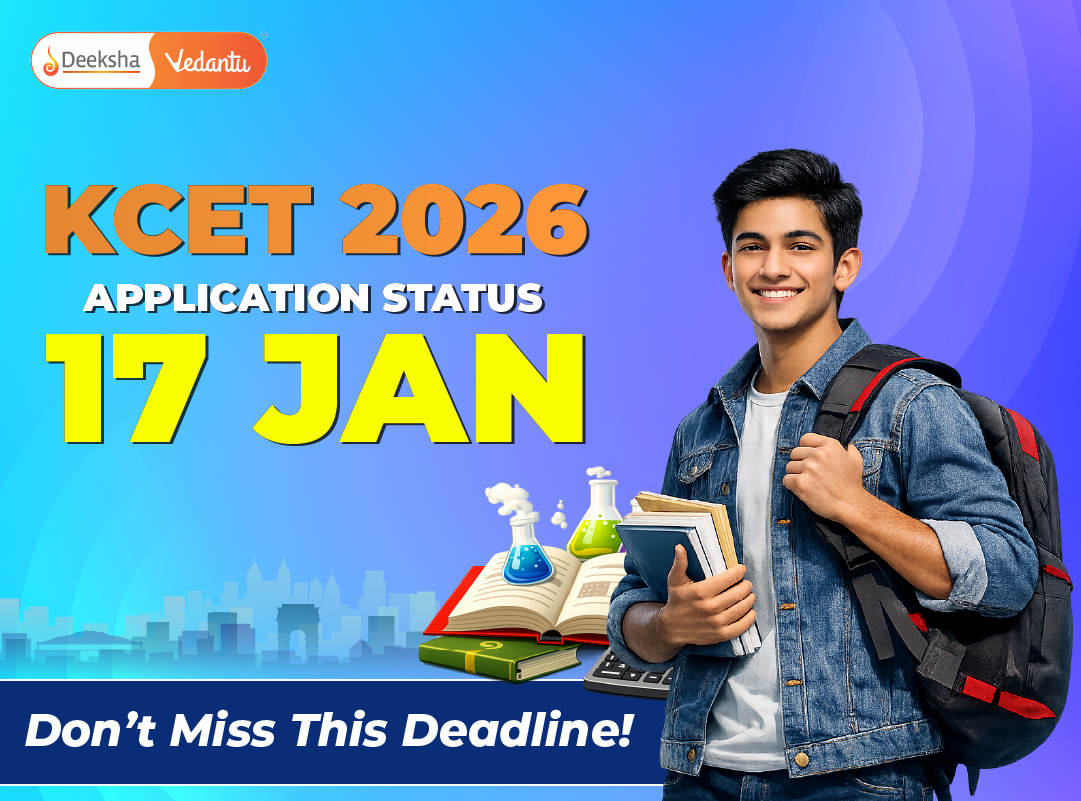
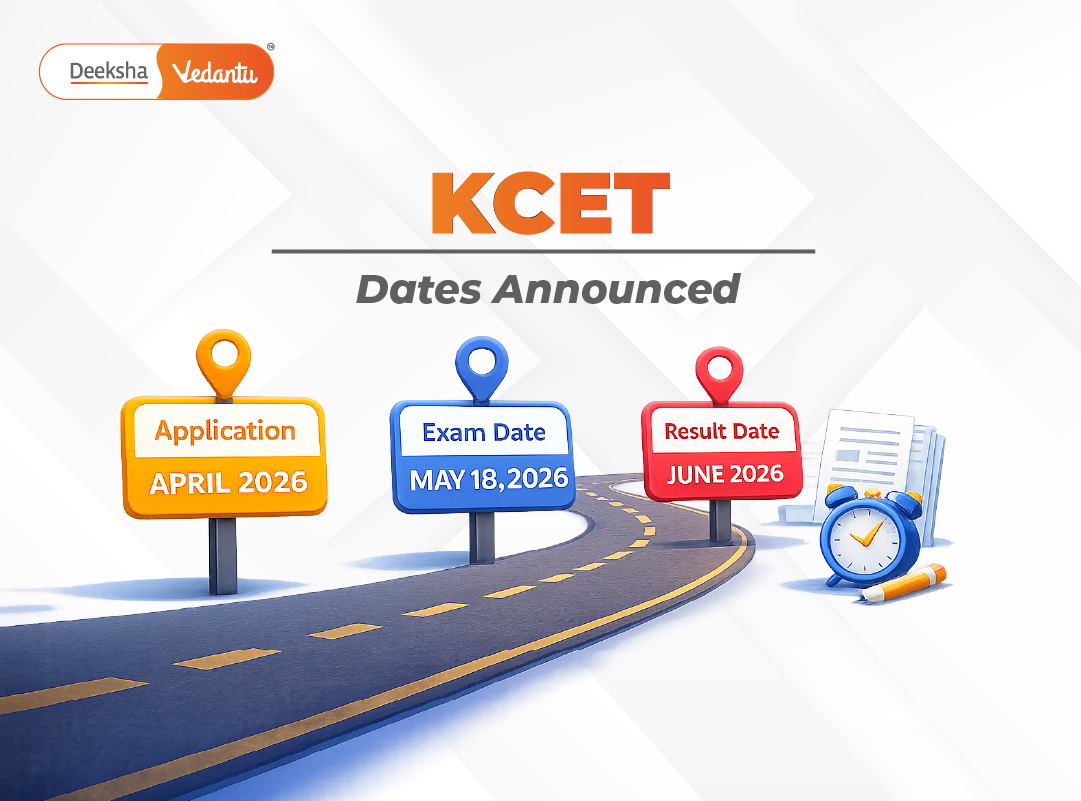
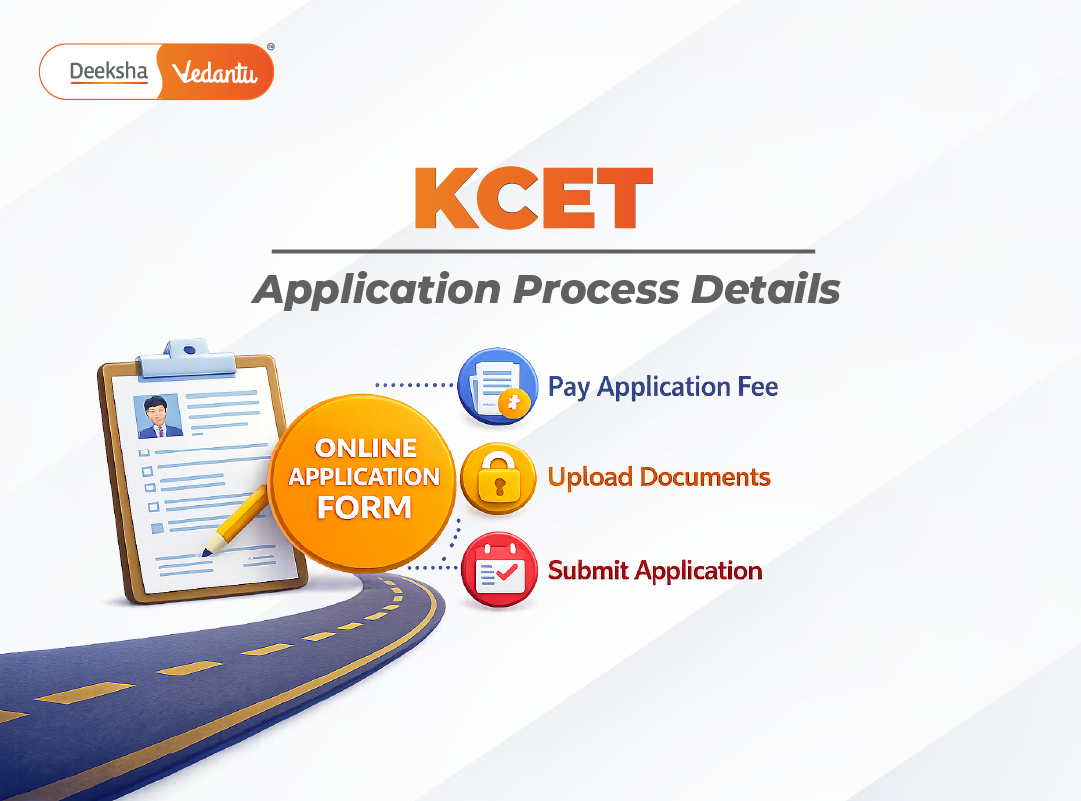
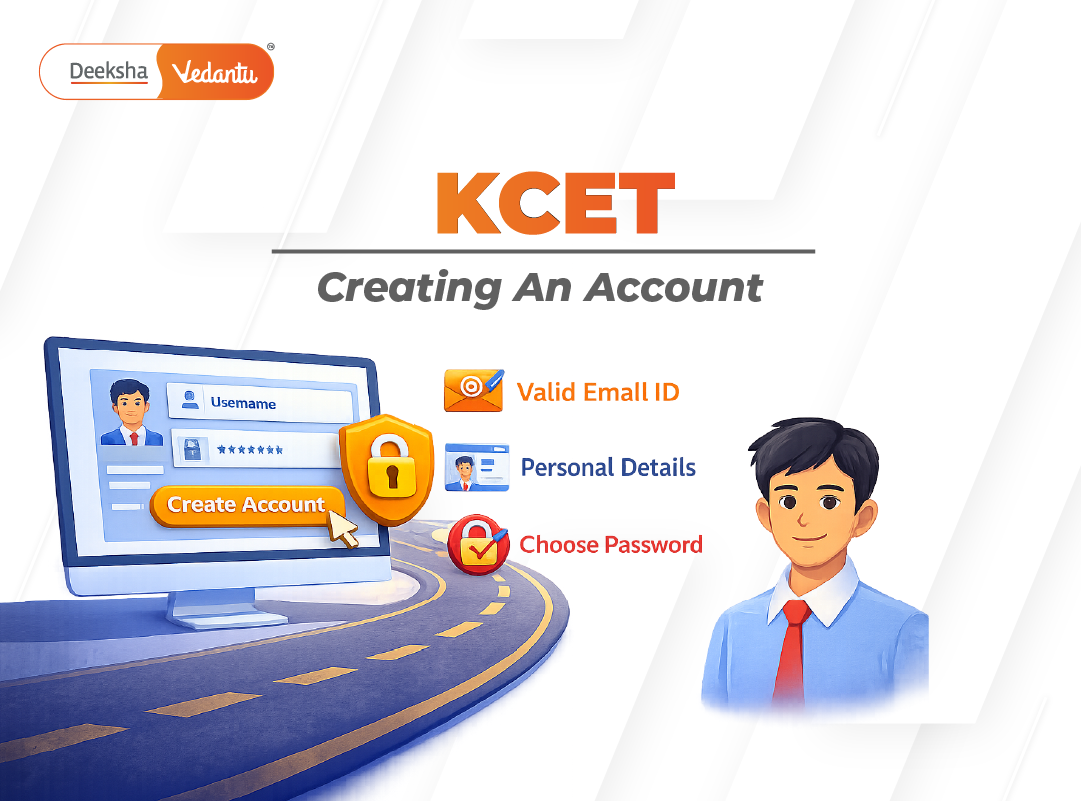
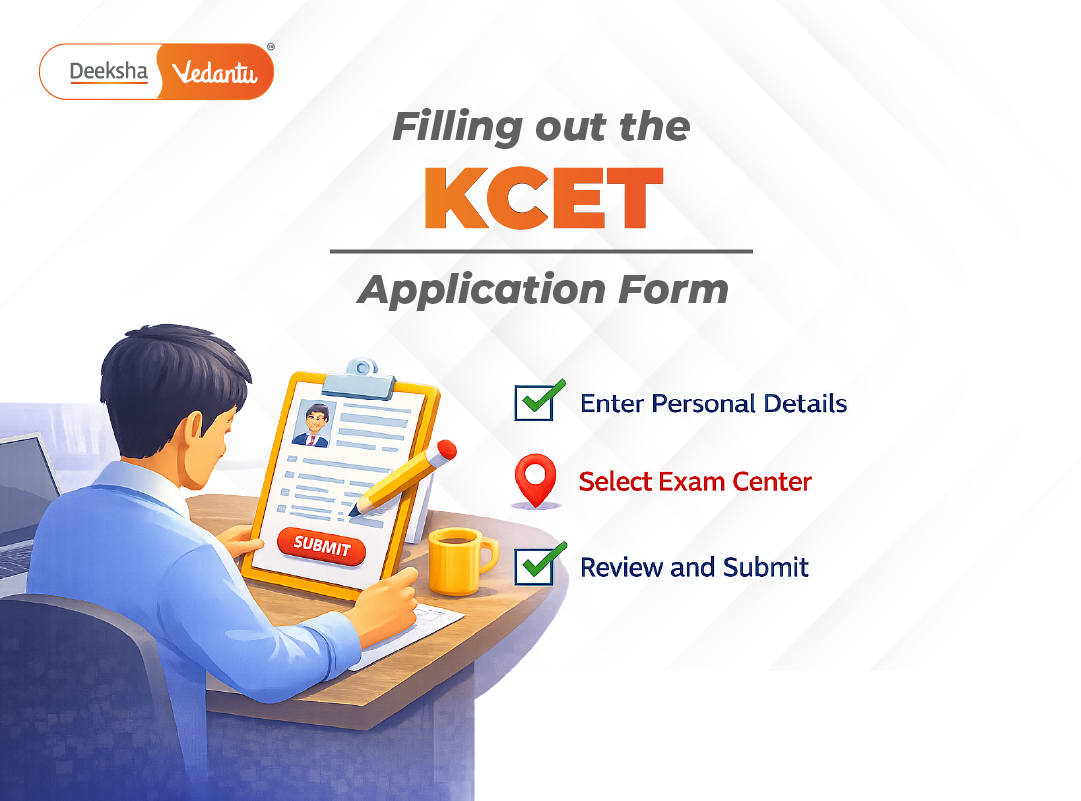


Get Social